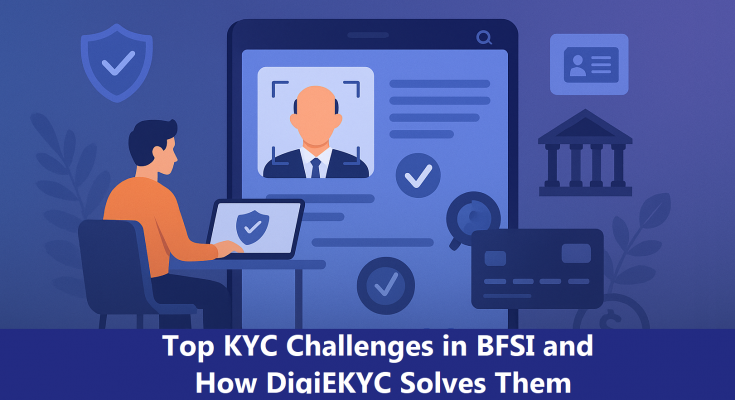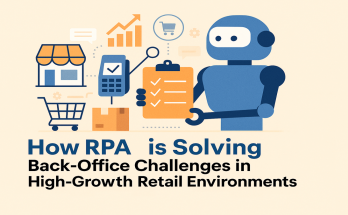DigiEKYC is a cloud-based KYC and digital onboarding platform designed for fintechs, NBFCs, and BFSI businesses. Developed by Tech Anand Rathi, the platform simplifies identity verification, speeds onboarding, and ensures end-to-end compliance through automation, integration, and analytics.
Verifying customer identity remains a critical part of regulatory compliance and customer lifecycle management in the financial services sector. For fintech organisations, it also determines how efficiently new users are onboarded, how quickly operations scale, and how consistently internal policies are followed. While digital tools have improved parts of the process, several businesses across BFSI (Business, Financial Services and Insurance) continue to face delays, inconsistencies, and compliance challenges that affect day-to-day performance.
A 2023 PwC India report noted that over 55% of financial institutions identify onboarding delays and a lack of KYC (Know Your Customer) process standardisation as key operational concerns. These issues often lead to longer turnaround times, incomplete records, and higher support costs. In response to these ongoing challenges, there is now a growing need for platforms that can simplify the KYC journey without compromising regulatory expectations.
DigiEKYC is one such platform.
This post examines the key challenges fintechs encounter in KYC and customer onboarding, and explains how a digital platform like DigiEKYC helps streamline these processes through a digital-first approach.
Exploring KYC Automation Options for Your Organisation?
Let our team walk you through DigiEKYC and answer any questions relevant to your use case.
Common KYC Pain Points in BFSI Workflows
Customer onboarding is often the first point of contact between a user and a financial product. When this process lacks clarity or consistency, it can lead to drop-offs, delays, and avoidable compliance risks. While most organisations in the BFSI sector aim to balance regulatory obligations with user convenience, several gaps in execution continue to affect operational performance and service quality.
Common KYC challenges in BFSI workflows include:
| 1. Delayed or Inconsistent Identity Verification Often caused by disconnected systems and manual checkpoints. |
2. Repetitive Document Requests Makes the process more time-consuming for customers, reducing KYC completion rates. |
| 3. Errors in Manual Review Processes Particularly when handling large onboarding volumes. |
4. Unclear Workflows Especially when regulatory requirements or customer profiles change. |
| 5. Limited Real-time Visibility Restricts the ability to track progress or resolve delays efficiently. |
6. High Compliance Costs Maintaining compliance becomes costly when dependent on outdated/legacy systems. |
| 7. Misalignment between internal teams Results in duplicated efforts and inconsistent data handling. |
8. Data Security Vulnerabilities Increase the risk of exposing or mishandling sensitive customer information during the KYC process. |
As financial institutions expand across customer segments and product lines, these challenges tend to multiply. Addressing them requires a structured, technology-led approach that simplifies coordination, ensures compliance, and improves the overall onboarding experience, both for internal teams and end users.
How DigiEKYC Tackles Every Major Pain Point in BFSI
The operational challenges occurring during KYC and onboarding in the BFSI sector often result from fragmented processes, limited coordination, and disconnected systems in practice. These inefficiencies not only delay onboarding but also increase customer onboarding costs and expose banks and financial institutions to compliance risks.
DigiEKYC helps bridge these gaps by consolidating critical KYC functions into a single, integrated platform. Rather than relying on multiple tools or manual handoffs, teams can manage identity verification, document processing, regulatory compliance checks, and audit readiness from a single interface.
The table below outlines how the platform resolves specific bottlenecks commonly observed across BFSI institutions:
| Sr No. | KYC Challenge | How DigiEKYC Responds |
|---|---|---|
| 1 | Inaccurate or forged identity submissions | AI OCR, facial match, and liveness detection ensure genuine documents and selfies. |
| 2 | Time-consuming document verification | Automated extraction and validation of PAN, Aadhaar, CKYC, and DigiLocker. |
| 3 | Incomplete or unverifiable bank details | Penny drop and reverse penny drop methods validate accounts in real time. |
| 4 | Fragmented financial data collection | Account Aggregator integration enables secure retrieval of verified bank data without manual uploads. |
| 5 | Weak user authentication and consent logging | Geo-location tracking, Gmail login, and digital signatures establish strong identity and consent trails. |
| 6 | High onboarding drop-offs due to complex flows | Single-OTP onboarding and intuitive UI reduce friction and increase completion rates. |
| 7 | Unresolved edge cases requiring manual intervention | Manual Verifier Dashboard enables oversight, exception handling, and final approvals. |
| 8 | Inability to adapt to evolving fraud tactics | AI and biometric verification continuously evolve to detect spoofing, deepfakes, and suspicious patterns. |
| 9 | Gaps in audit preparedness | Timestamped logs and centralised case histories ensure audit readiness. |
How DigiEKYC Helps BFSI Firms Manage End-to-End KYC and Onboarding Lifecycle
DigiEKYC helps banks, insurance providers, NBFCs, and other financial institutions manage the entire Know Your Customer (KYC) process. This includes customer onboarding, identity verification, periodic reviews, and regulatory compliance checks. The platform enables seamless coordination across teams, promotes process consistency, and supports compliance with guidelines issued by the Reserve Bank of India (RBI), the Securities and Exchange Board of India (SEBI) and the Financial Action Task Force (FATF) throughout the customer lifecycle.
DigiEKYC offers capabilities that allow organisations to monitor, update, and govern customer identity records at every stage of the relationship, ensuring both operational efficiency and regulatory alignment.
KYC Roadmap for BFSI with DigieKYC
Early AML screening and digital consent with geo-tag, Gmail, and e-signature.
AI OCR extracts data; face match and liveness confirm identity.
Multi-language support and a fast, user-friendly experience.
Dashboard for manual review of flagged cases.
DigiEKYC helps BFSI organisations improve productivity and reduce onboarding delays by turning KYC into a streamlined, system-led process. It eliminates repetitive manual steps, improves data accuracy at each stage, and ensures that customer information is verified and captured without delay. By reducing dependence on multiple tools and enabling real-time record handling, DigiEKYC allows teams to process more applications in less time, while keeping necessary compliance checks integrated within the workflow.
Reasons BFSI Leaders Choose DigiEKYC for KYC Process Modernisation
An effective onboarding process is not defined by speed alone; it must also deliver accuracy, compliance, consistency, and the ability to scale. DigiEKYC addresses these expectations through an integrated, automation-driven framework that reduces manual effort while enhancing process reliability. As a result, BFSI institutions leveraging DigiEKYC have seen measurable improvements across critical operational touchpoints.
Here is why BFSI organisations find DigiEKYC a worthy platform to manage end-to-end KYC and onboarding workflow:
1. Features Make DigiEKYC a Strong Fit for BFSI Use Cases
The feature suite embedded within DigiEKYC helps financial institutions move from fragmented, manual KYC processes to a scalable, policy-compliant onboarding infrastructure that works across product lines, customer segments, and geographic boundaries.
DigiEKYC Feature Suite
These figures reflect more than just operational efficiency, and they point to a structural shift in how BFSI firms manage compliance-heavy processes. By eliminating the need for ad-hoc adjustments and reducing system dependencies, DigiEKYC allows onboarding and compliance teams to focus on service quality, customer satisfaction, and process expansion.
2. Organisations Experience High Productivity Gains After Deploying DigiEKYC
Organisations in the BFSI sector have observed improved process efficiency after implementing DigiEKYC. By streamlining identity verification, reducing manual intervention, and improving data consistency, the platform enables teams to handle higher volumes with greater speed and accuracy. These gains not only enhance operational efficiency but also support better alignment across compliance, technology, and customer service functions.
Performance Outcomes After DigiEKYC Adoption
These outcomes testify to how DigiEKYC helps financial institutions improve key onboarding and verification processes. By reducing effort, error, and turnaround time while maintaining compliance and audit readiness, the platform supports more consistent, efficient, and scalable customer onboarding across business lines.
DigiEKYC — A Platform You Can Rely On for KYC and Onboarding
KYC is no longer just a compliance requirement or a back-office task. It plays a direct role in shaping customer experience, operational consistency, and long-term trust. DigiEKYC offers a structured and reliable approach to address the pain points of modern KYC and onboarding workflows.
DigiEKYC offers a dependable and future-ready approach to managing digital KYC and customer onboarding. Designed for real operational challenges, it helps BFSI institutions streamline processes, reduce costs, and improve consistency across the customer journey.
By combining accuracy, speed, and structured control in a single platform, DigiEKYC delivers both immediate productivity gains and long-term efficiency. It’s a practical investment for organisations looking to simplify compliance without compromising performance.
KYC and Onboarding Made Simpler, Safer, and Smarter with DigiEKYC
Request a walkthrough and see how your team can save time, reduce costs, and maintain full regulatory control.




